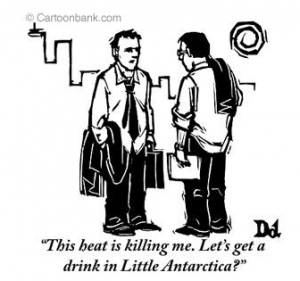Middlebury professors discussed the new interdisciplinary minor that Middlebury is offering in Global Health.
1. Svea Closser, Department of Sociology-Anthropology, Middlebury College
Discussed the creation of the minor
-Outlined some of the courses she teaches for the minor (Core course is SOAN 267 Global Health)
-Growing interest in global health led to creation of minor (Supply and demand)
2.Sarah Stroup, Department of Political Science, Middlebury College
Discussed goals of program: To teach humanitarian and charitable action at home and abroad
-“The causes and solutions to disease are political and economic”
This connects to the theme of the keynote speech given by Dorothy Roberts who claimed that social inequalities created by race lead to higher mortality rates for African-Americans.
-Teaches class on international humanitarian action
-Difference between humanitarian relief on a global scale and community scale
a. Global- Developed countries like the US see disasters as oppurtunities for change, but this is impossible because of pre-existing political problems (Rwanda)
b. Community- Easier to take action because easier to understand social/political dynamics of a smaller group.
3. Steve Viner, Department of Philosophy, Middlebury College
Discussed moral responsibilities we have as wealthy citizens of a developed country and moral dilemmas of global health
-Who should get what in terms of relief
-What moral responsibilities do we have to the global poor
Example: 18 million children die prematurely worldwide due to diseases like malaria.
–Unicef has a program where you can donate 25 dollars to pay for all the vaccinations for a child in a poor country
-It should be our moral duty to donate this money, yet some don’t
-Those who do donate feel like they did something above and beyond the scope of their duties when in reality just did what they should do
-In the case of natural disasters more people likely to give because no one is to blame for situation
-We need to see global poor as our equals
-Thinks that liberal arts leads to better understanding of global health issues because more in tune with social and political issues
4. Robert Cluss, Department of Chemistry and Biochemistry, Dean of Curriculum, Middlebury College
-Discussed the role of liberal arts in minor (side note, this minor perfectly exemplifies an interdisciplinary program, if you look at the professors who spoke they come from chem, religion,soan, poli sci, and philosophy departments)
–Study Abroad plays big role in program
5. Q and A session led by James Davis, Department of religion
- [Senior student who started globomed at mid] How do you see the future for Middlebury and the study of global health? Are there any limitations?
-We are lucky to have J-term, allows for lots of innovative and creative classes
-No plans to create major out of minor
2. [Linda White Japanese/WAGS] How much is gender a topic in these courses?
-Courses stress that women’s rights are just natural human rights but applied to women.
3. [Sophomore student] What are we not doing as developed countries to help the underdeveloped countries?
-People aren’t doing the easy things like donating 25 dollars. Many people can do this but don’t
-We need to realize it’s our duty to help, not optional
4. [Jeremy Greene prof. at Harvard]
How does the combination of all these fields lead to a comprehensive minor?
-The beauty of liberal arts is that everything doesn’t have to make sense. If you pull knowledge from many different fields and it doesn’t all add up to something understandable, you’ve still learned.
Best,
Cooper and Nick
